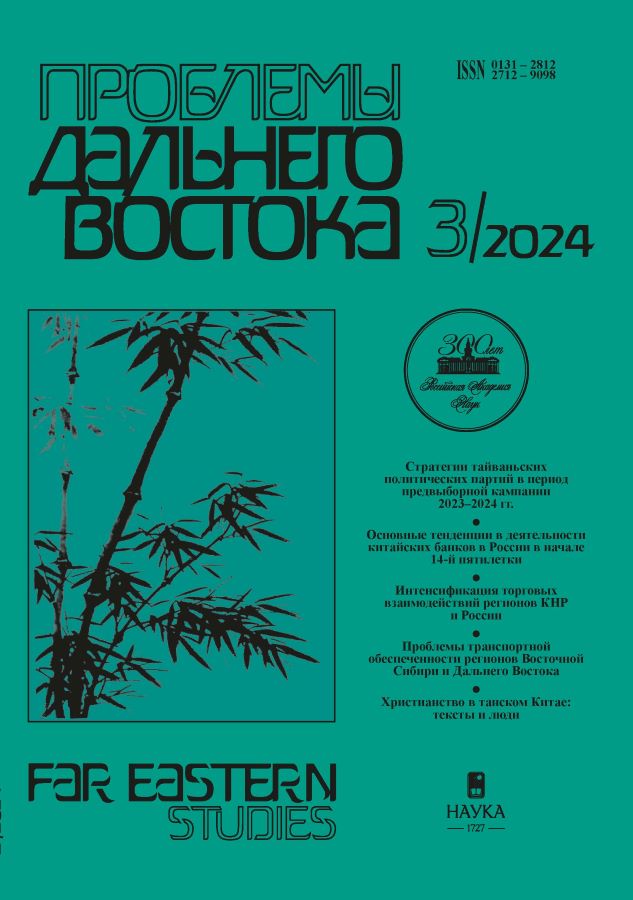The 2024 Parliamentary Election in the Republic of Korea
- Авторлар: Chernetskii F.M.1,2
-
Мекемелер:
- Institute of Economics of the Russian Academy of Sciences
- Lomonosov Moscow State University
- Шығарылым: № 3 (2024)
- Беттер: 42-55
- Бөлім: Politics
- URL: https://gynecology.orscience.ru/0131-2812/article/view/676317
- DOI: https://doi.org/10.31857/S0131281224030034
- ID: 676317
Дәйексөз келтіру
Аннотация
The parliamentary elections in the Republic of Korea were held on April 10, 2024. Although parliament is not as significant part of the political system as the presidency, its role does increase if the president and parliamentary majority are from different parties. This scenario developed after the 2022 presidential elections, which were won by Yoon Suk-yeol. As a result, the government's ability to implement policies that go against the opposition's opinion was limited. In the 2024 elections the ruling party aimed to gain a parliamentary majority or at least maintain its current position, while the opposition tried to achieve a constitutional majority. As a result, there was only an internal reshuffling of the political camps. The Democratic Party once again achieved a convincing victory, winning 169 of the 300 seats, while another 19 were won by DP’s allies. The ruling party won only 108 seats, marginally improving its performance in Seoul and Busan. Despite internal divisions, «third» parties were unable to achieve significant results. The opposition succeeded in consolidating the protest vote to counter the Yoon Suk-yeol’s administration, who will face opposition from parliament during his remaining three years in office. However, the opposition failed to achieve its goal of gaining a parliamentary majority.
Негізгі сөздер
Авторлар туралы
Fedor Chernetskii
Institute of Economics of the Russian Academy of Sciences; Lomonosov Moscow State University
Email: fedor.mche@gmail.com
ORCID iD: 0000-0001-7086-8663
Junior researcher, Center for Russian Strategy in Asia; Graduate student, Department of Human Geography of Foreign Countries, Faculty of Geography Moscow, Russia
Әдебиет тізімі
- Асмолов К.В. Президентские выборы-2022 в Республике Корея // Проблемы Дальнего Востока. 2022. № 2. С. 80-96. doi: 10.31857/S013128120019649-4
- Ланцова И.С. Выборы 2017 г. в Республике Корея: специфические черты // Корея и Россия. Общество, политика, история, культура. 2022. С. 132-137.
- Лукьянов А.И., Чернецкий Ф.М. Пространственная конфигурация ключевых парламентских избирательных округов в Республике Корея в XXI веке // Проблемы Дальнего Востока. 2023. № 3. С. 111-124. doi: 10.31857/S013128120026255-1
- Чернецкий Ф.М. Прагматичный регионализм Чхунчхона в контексте регионального противостояния в Республике Корея // Эволюционное страноведение: теория и практика. 2023. С. 145-158.
- Чернецкий Ф.М. Регионализм как ключевой фактор в электоральных процессах в Республике Корея // Вестник российского корееведения. 2022. № 13. С. 67-81.
- Jung K., Kang Y. A report of the 2018 regional election in South Korea // Regional & Federal Studies. 2020. No. 3 (30). Pp. 493-509. doi: 10.1080/13597566.2020.1761341
- Lee Y., You J. Is Class Voting Emergent in Korea? // Journal of East Asian Studies. 2019. No. 2 (19). Pp. 197-213. doi: 10.1017/jea.2019.10
- Park J. The Conservatization of the 386 Generation: Cohort Effects in Voting Behavior of a Political Generation in South Korea. Sanford School of Public Policy, Duke University, 2011. 63 p.
- National Electoral Commission. URL: http://info.nec.go.kr/ (дата обращения: 11.04.2024).
- Gallup Korea. URL: https://www.gallup.co.kr/gallupdb/main.asp (дата обращения: 11.04.2024).
Қосымша файлдар









